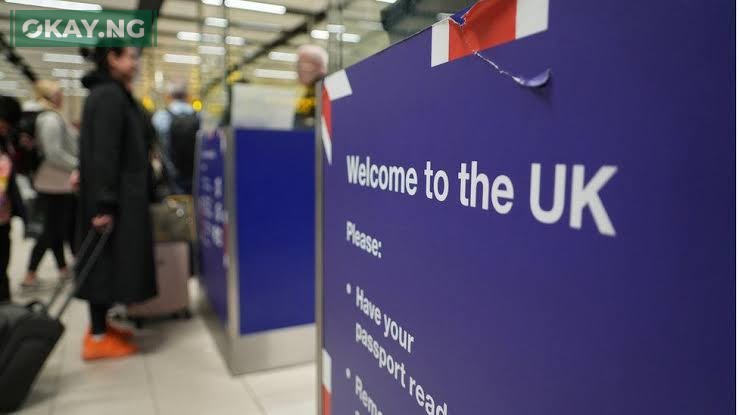Thousands of Nigerians currently employed in the United Kingdom under Certificates of Sponsorship (CoS) and Skilled Worker visas are facing uncertainty following recent regulatory changes introduced by the UK government to curb immigration.
The updated immigration rules, which came into force on July 22, 2025, have removed over 100 occupations, including many skilled worker positions, from eligibility for sponsorship under the CoS scheme. Moreover, salary thresholds for remaining eligible roles have been raised by at least 30 percent, making it harder for workers and employers to meet the conditions of these visas.
This decision means that lower-skilled roles at Qualification and Credit Framework (RQF) Level 3 to 5 are largely excluded from sponsorship eligibility unless they appear on a newly instated Temporary Shortage Occupation List. Among the affected professions are agricultural managers, hospitality managers, logistics managers, health and community workers such as dispensing opticians and pharmaceutical technicians, protective services like police sergeants and fire officers, and creative professionals including artists, authors, and designers.
Additionally, the minimum skill requirement has been elevated to Level 6, roughly corresponding to a bachelor’s degree, resulting in many previously eligible roles being dropped from sponsorship consideration. The salary threshold for general skilled workers now stands at £41,700 and above, though health and care workers maintain a lower threshold of £25,600. Notably, employers for health and care roles must ensure the employee actually receives this minimum amount after deductions like accommodation and transportation.
According to UK-based travel agent Kayode Alabi, Chief Executive Officer of Phika Travels and Tours, Nigerians whose roles have been delisted face the prospect of being unable to renew their visas once their current sponsorship ends, commonly between one and five years. “No Nigerians have been sacked because of the new regulations, but their fate will hang in the balance because at the end of their current sponsorship, those whose jobs have been removed from CoS eligibility will not be able to find a new job in that category, and their visa will not be renewed. If you don’t have a valid visa, you become an illegal immigrant,” Alabi explained. He added that even for retained roles, employers may struggle to meet the new higher salary requirements, endangering workers’ long-term status.
The new policy has caused significant anxiety among Nigerian workers in the UK. Banjo Fola, a Nigerian in the UK affected by these changes, noted, “My visa with this current job will expire in some months, and my employer has said he cannot afford the new salary threshold. It is very hard. I don’t even know what to do.” Another caregiver expressed concern that she might have to return home upon the expiration of her sponsorship next month due to the stricter rules.
The Chief Executive Officer of Cardinal E-School and Edu Services, Sulaimon Okewole, estimated that over 10,000 Nigerians could be forced to leave the UK as a result of these new rules. “While the UK government’s goal of reducing net migration is understandable, the impact on Nigerians, a community known for its immense contribution to the UK’s workforce, demands some discussions,” he remarked, noting that sectors like healthcare and IT are particularly affected.
Data from the UK Home Office showed 10,245 Nigerians obtained Skilled Worker visas in 2021, with a rise to 26,715 in 2023. However, visas issued in the first half of 2024 indicate a downward trend.
Among the affected families is Eniola, a University of Ibadan student whose mother, a caregiver in the UK, faces job uncertainty. “She has practically lost her job because the sponsorship will come to an end in November. She has been there since 2023. She informed me that her job has been delisted, and she is not sure she will find a fresh sponsor or new job. I can tell from our conversation that she is afraid,” Eniola disclosed.
These developments underscore growing challenges for Nigerians seeking to build careers abroad under increasingly restrictive immigration frameworks. okay.ng reports.







